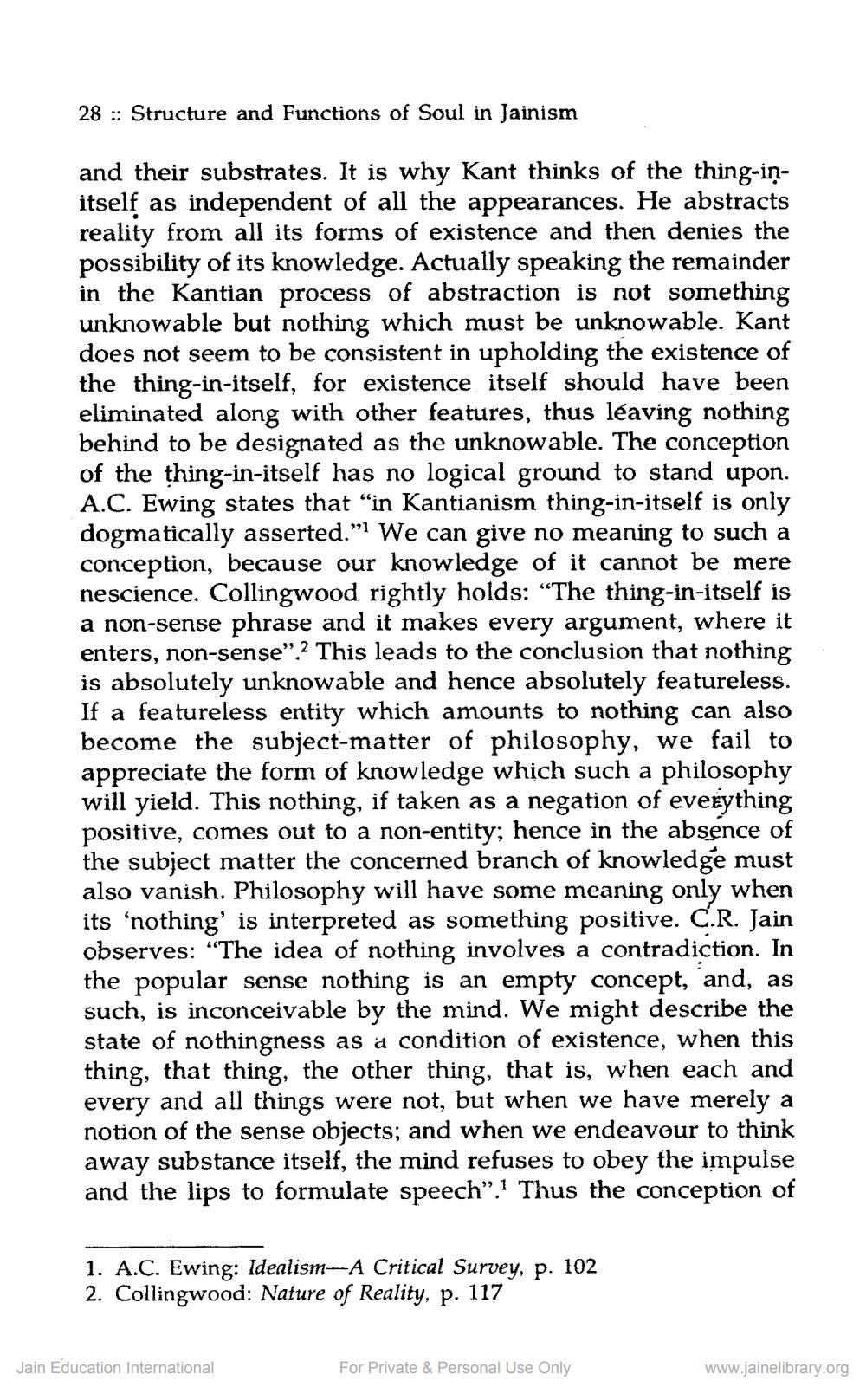________________
28 :: Structure and Functions of Soul in Jainism
and their substrates. It is why Kant thinks of the thing-initself as independent of all the appearances. He abstracts reality from all its forms of existence and then denies the possibility of its knowledge. Actually speaking the remainder in the Kantian process of abstraction is not something unknowable but nothing which must be unknowable. Kant does not seem to be consistent in upholding the existence of the thing-in-itself, for existence itself should have been eliminated along with other features, thus leaving nothing behind to be designated as the unknowable. The conception of the thing-in-itself has no logical ground to stand upon. A.C. Ewing states that “in Kantianism thing-in-itself is only dogmatically asserted.” We can give no meaning to such a conception, because our knowledge of it cannot be mere nescience. Collingwood rightly holds: “The thing-in-itself is a non-sense phrase and it makes every argument, where it enters, non-sense".? This leads to the conclusion that nothing is absolutely unknowable and hence absolutely featureless. If a featureless entity which amounts to nothing can also become the subject-matter of philosophy, we fail to appreciate the form of knowledge which such a philosophy will yield. This nothing, if taken as a negation of evečything positive, comes out to a non-entity; hence in the absence of the subject matter the concerned branch of knowledge must also vanish. Philosophy will have some meaning only when its ‘nothing' is interpreted as something positive. C.R. Jain observes: “The idea of nothing involves a contradiction. In the popular sense nothing is an empty concept, and, as such, is inconceivable by the mind. We might describe the state of nothingness as a condition of existence, when this thing, that thing, the other thing, that is, when each and every and all things were not, but when we have merely a notion of the sense objects; and when we endeavour to think away substance itself, the mind refuses to obey the impulse and the lips to formulate speech”. Thus the conception of
1. A.C. Ewing: Idealism-A Critical Survey, p. 102 2. Collingwood: Nature of Reality, p. 117
Jain Education International
For Private & Personal Use Only
www.jainelibrary.org




